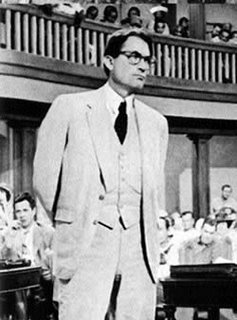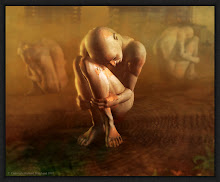“Heck,” Atticus’s back was turned. “If this thing’s hushed up, it’ll be a simple denial to Jem of the way I’ve tried to raise him. Sometimes I think I’m a total failure as a parent, but I’m all they’ve got. Before Jem looks at anyone else he looks at me, and I’ve tried to live so I can look squarely back at him… If I connived at something like this, frankly I couldn’t meet his eye, and the day I can’t do that I’ll know I’ve lost him. I don’t want to lose him and Scout, because they’re all I’ve got.”
Moral conflicts are often impossible to reconcile. For most of us, pragmatism is the seemingly appropriate option. We would rather take the easy, profitable way out rather than do what is ultimately right. Most of us would rather suffer the trials of our conscience than the trials of society. This does not apply to Atticus Finch, a man whose moral principles are so strong that he will not let anything budge him from doing what is right, regardless of the consequences. The statement above reveals the strength of his beliefs in bringing up his children; so much so that he does not want to hide what he thought was the truth of what happened to Jem and Scout as well as the murder of Bob Ewell.
Is a man like Atticus Finch a member of a rare and dying breed of people? How many individuals in our society today have the sort of courage and backbone to stand up against what they know to be wrong and defend what is right at all costs? How many of us, on the other hand, would rather just turn a blind eye towards the many wrongs in our world, just to maintain our own secure comforts? It seems as if most of us would rather keep our own selfish pleasures, even if those luxuries come at the cost of someone else’s suffering. In the case of To Kill a Mockingbird, it was the white society that was enjoying the comforts provided to them by the subjugation of the blacks.
To some of us, Atticus Finch would seem to be an irrational idiot or a romantic idealist. To others, he is a hero and a champion. The beauty of Atticus is that to him, it never really mattered what others thought of him, except his children and himself. He found contentment and happiness from the simple knowledge that he lived his life according to good conscience, the knowledge that his children would always be able to look to him for guidance and also the knowledge that he had tried his hardest to do some good in the world. The last part was epitomized by his defense of Tom Robinson and his championing of the black community. Ultimately, he found satisfaction in his way of life and would have been able to sleep easy, so what right do any of us have to judge him? How many of us can say the same thing about ourselves, looking at the way we live? We are aware of so many evils in our society yet we refuse to make a stand? Can we ever achieve any amount of satisfaction and contentment in the way we live?



No comments:
Post a Comment